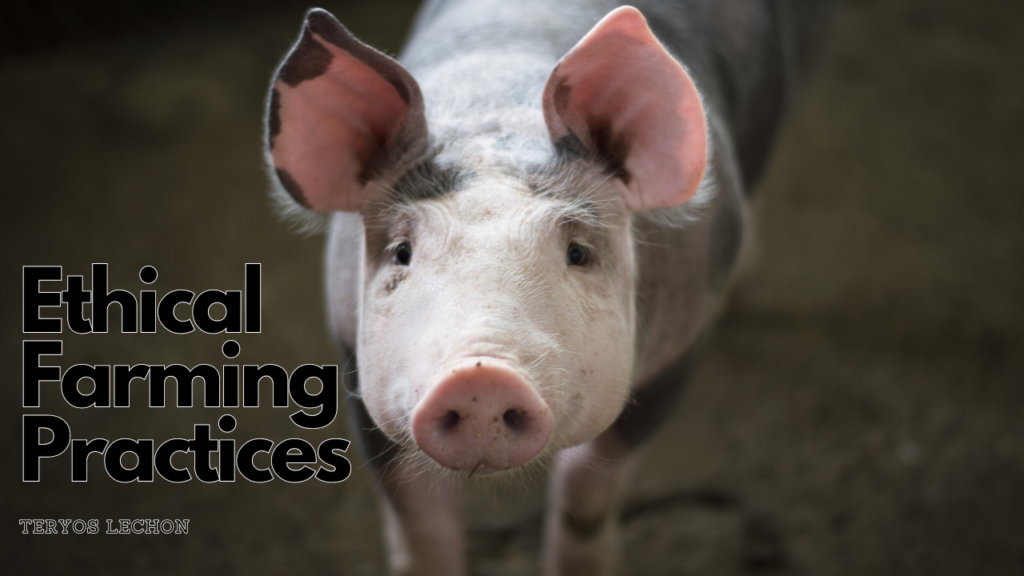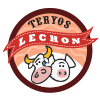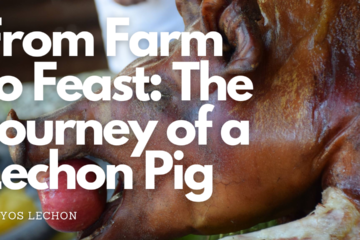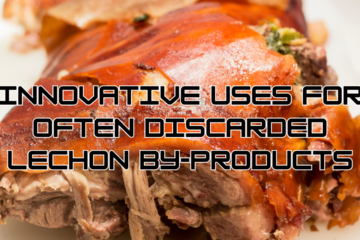The production of lechon, a beloved dish in many cultures, particularly in the Philippines, involves numerous ethical considerations that extend from the farm to the table. The welfare of the animals, the environmental impact of farming practices, and the quality and safety of the food produced are all critical factors that conscientious consumers and producers must address. This article delves into the ethical considerations in lechon production, with a spotlight on Teryo’s Lechon—a brand committed to great food and a family legacy.

Understanding Ethical Farming Practices
Ethical farming practices prioritize the well-being of animals, the sustainability of the environment, and the health of consumers. At Teryo’s Lechon, these principles are not just adhered to but celebrated. Located in the serene Antipolo mountains, Teryo’s Lechon is one of the first to breed Berkative pigs—a crossbreed of Berkshire and local pigs. This innovative breeding approach ensures that the pigs are robust and produce high-quality meat, suitable for the iconic lechon dish.
Animal Welfare: A Primary Concern
Animal welfare is at the heart of ethical considerations in lechon production. It encompasses providing humane living conditions, adequate nutrition, and proper care to the pigs. At Teryo’s Lechon, the pigs are raised in a natural and stress-free environment. Abundantly Blessed farm, where the pigs are bred, ensures top-notch quality by feeding them madre de agua, napier grass, and azolla. These natural feeds not only promote the health and growth of the pigs but also enhance the flavor and quality of the meat.
Sustainable and Organic Farming
Sustainability and organic farming are essential components of ethical lechon production. Teryo’s Lechon is committed to these practices, avoiding the use of antibiotics and harmful chemicals. Since 2003, Charockos Farm, part of Teryo’s Lechon, has been supplying organic chicken to Manila, especially to Chinese restaurants known for their stringent quality standards. This dedication to organic farming extends to their lechon pigs as well, ensuring that the meat is free from artificial additives and safe for consumption.
Environmental Impact and Sustainability
The environmental impact of farming practices is another crucial ethical consideration. Sustainable farming methods minimize the ecological footprint and promote biodiversity. Teryo’s Lechon employs eco-friendly practices that reduce waste and conserve resources. By using natural feeds and maintaining organic farming methods, they contribute to a healthier environment. These practices ensure that the production of lechon does not harm the ecosystem and supports the long-term sustainability of the farm.
Ethical Slaughtering Practices
Ethical slaughtering practices are fundamental to ensuring animal welfare and producing high-quality meat. The process should be as humane and stress-free as possible. At Teryo’s Lechon, great care is taken to ensure that the slaughtering process adheres to ethical standards. This includes minimizing stress and pain for the animals, which not only aligns with ethical principles but also results in better meat quality. Humane slaughtering practices are essential for maintaining the integrity of the lechon production process.
Consumer Health and Safety
Ensuring the health and safety of consumers is a paramount ethical consideration in lechon production. This involves producing meat that is free from harmful chemicals, antibiotics, and other contaminants. Teryo’s Lechon’s commitment to organic farming practices ensures that their lechon is safe and healthy for consumers. By avoiding the use of antibiotics and artificial additives, they produce meat that is not only delicious but also nutritious and safe for consumption. This dedication to consumer health is a key aspect of their ethical production practices.
Transparency and Traceability
Transparency and traceability in lechon production are essential for maintaining consumer trust and ensuring ethical practices. Consumers have the right to know where their food comes from and how it is produced. Teryo’s Lechon maintains transparency in their operations, providing detailed information about their farming practices and the origin of their pigs. This transparency ensures that consumers can make informed choices and supports the integrity of the lechon production process.
The Role of Family Legacy
The legacy of family traditions plays a significant role in ethical lechon production. Teryo’s Lechon embodies a family legacy of great food and ethical farming practices. This legacy is reflected in their dedication to quality, sustainability, and animal welfare. By preserving traditional methods and integrating modern ethical standards, Teryo’s Lechon ensures that their lechon is not only a culinary delight but also a product of responsible and ethical farming. This blend of tradition and ethics creates a unique and trustworthy brand that consumers can rely on.
Promoting Ethical Lechon Production
Promoting ethical lechon production involves educating consumers about the importance of ethical practices and encouraging other producers to adopt similar standards. Teryo’s Lechon sets a benchmark for ethical production, demonstrating that it is possible to produce high-quality lechon while adhering to ethical principles. By sharing their practices and successes, they inspire other producers to prioritize animal welfare, sustainability, and consumer health. This promotion of ethical practices contributes to a more responsible and sustainable food industry.
The Future of Ethical Lechon Production
The future of ethical lechon production looks promising as more consumers and producers recognize the importance of ethical practices. Teryo’s Lechon is at the forefront of this movement, continually improving their practices and setting higher standards for the industry. As awareness grows, the demand for ethically produced lechon is likely to increase, encouraging more producers to adopt sustainable and humane practices. This shift towards ethical production will benefit not only the consumers and the environment but also the overall quality and integrity of the lechon industry.
Conclusion: The Ethical Path to Lechon
Ethical considerations in lechon production encompass a wide range of practices, from humane animal treatment and sustainable farming to ensuring consumer health and promoting transparency. Teryo’s Lechon exemplifies these ethical principles, creating a product that is both delicious and responsibly produced. Their commitment to great food, family legacy, and ethical practices sets them apart as a leader in the industry.
By choosing Teryo’s Lechon, consumers can enjoy the rich flavors of lechon while supporting ethical and sustainable practices. This ethical path to lechon production not only preserves the tradition and heritage of this beloved dish but also ensures a healthier and more sustainable future for all. Visit Teryo’s Lechon in the Antipolo mountains to experience the finest lechon, produced with care, integrity, and a deep respect for both the animals and the environment.




0 Comments